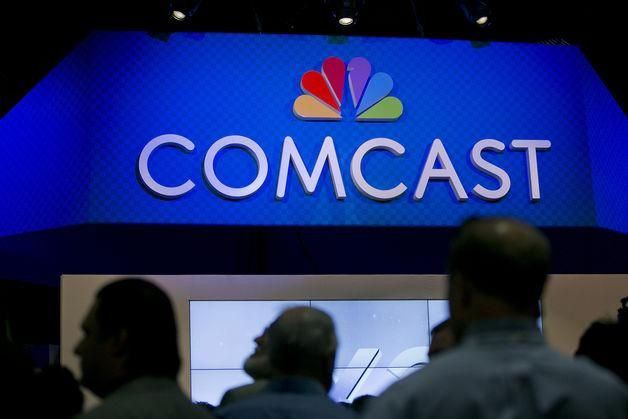Comcast Fires Back At ‘Inaccurate Claims’ Made By Critics, Touts Track Record In NBCUniversal Merger

Perhaps growing tired of being everyone’s punching bag, Comcast Corp. took a swipe at its many vocal detractors this week, boasting that it has a “track record” of fair bargaining with media companies. This despite increasing accusations from competitors and consumer groups who say the Philadelphia cable giant should not be allowed to merge with Time Warner Cable Inc. lest it use its increased size to squash emerging competitors and discourage innovation.
On the contrary, wrote David L. Cohen, Comcast’s executive vice president: In the four years since Comcast merged with NBCUniversal, there has not been a single carriage complaint to the government under the merger order. “Notwithstanding the inaccurate claims by some critics of our company, our record speaks for itself,” Cohen wrote Tuesday on the company’s corporate blog.
The comments could indicate a subtle acknowledgement that the $45 billion TWC merger, once seen as a sure thing, is facing headwinds after a year of negative public sentiment.
The purpose of the blog post was to announce the filing of Comcast’s fourth annual “Compliance Report” to the U.S. Federal Communications Commission. The report summarizes the steps Comcast and NBCUniversal are taking to meet the more than 150 federally imposed conditions of the merger.
Cohen is the senior executive in charge of ensuring that the conditions are met, and also oversees lobbying efforts for the Comcast-TWC merger. His comments came one day after the group “Stop Mega Comcast” -- a coalition of companies, public interest organizations and labor unions -- held a press conference warning that the FCC’s recent net neutrality vote will not mitigate what they say are anticompetitive harms posed by merger.
Specifically, Jeff Blum, deputy general counsel for Dish Network Corp., a member of the coalition, told reporters Monday that a merged Comcast-TWC could use its influence to “pressure or persuade” third-party content providers into not granting over-the-top rights for their content, thereby “sabotaging” the streaming services. The suggestion is particularly thorny at a time when such services are mushrooming and channels like HBO are preparing direct-to-consumer products.
But Comcast countered that charge by citing a Department of Justice consent decree that prohibits it from striking deals that would limit online video distribution. In a statement Monday, a Comcast spokeswoman painted Dish Network as a “vigorous competitor” using anticompetitive fears as a means of influencing public sentiment to serve its own needs. “Dish not wanting stronger competitors isn’t surprising and it isn’t new,” she said. “Any issues regarding NBCUniversal programming and other video services, whether they be traditional or over the top are already amply covered by pre-existing FCC rules and deal conditions.”
In his blog post Tuesday, Cohen put “Online Video” first in a list of highlights from the Compliance Report, noting that Comcast-NBCU reached new or renewed licensing deals with a number of streaming services last year, including Netflix Inc. and Amazon.com Inc. He called the agreements “fair dealings with online video distributors.”
Read the full post here, and the full Compliance Report here.
Christopher Zara is a senior writer who covers media and culture. News tips? Email me here. Follow me on Twitter @christopherzara.
© Copyright IBTimes 2024. All rights reserved.






















